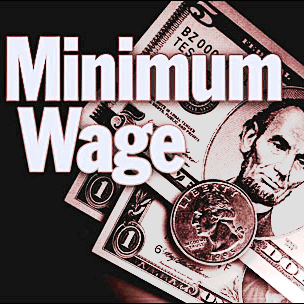In a previous post, we discussed the California minimum wage law and how the minimum wage violations are not always obvious and may require professional evaluation to ascertain the wrongdoings. The following examples should help you recognize some of the typical violations.
Working “off the clock”
As an employee, you are supposed to be paid for all the hours (and minutes) you have worked. If your employer requires you to work outside of your schedule hours without including the time in your paycheck, your employer violates the minimum wage law. Under California labor law, employers must pay for all job duties that are “integral and indispensable part of the principle activities” for which employees are employed.
The following examples are some of the typical situations where employers unlawfully require their workers to work “off the clock” without paying for their time:
-requiring workers to be available “on-call”;
-requiring to complete certain assignments before or after the shift (e.g. preparing and/or picking up work equipment);
-requiring to attend pre-shift meetings, training, seminars, workshops, etc;
-requiring to change the uniform at work (“donning and doffing”);
-requiring to clock out before taking a 10-minute break;
-requiring to check and reply email or phone messages using personal “off the clock” time;
-traveling from one job site to another (or from employee’s premises to a job site).
Paying Wages in Cash “Under the Table”
To avoid the payments of payroll taxes, employers oftentimes pay their workers’ wages in cash or personal checks below the minimum wage rate. This practice is referred to as “paying under the table” or “underground economy.”An employer who pays wage “under the table” plays a dangerous game which can subject him to criminal liability for tax evasion and fraud. As to employees, this practice is also harmful. First, employees are losing thousands of dollars in wages, because their earnings are below the minimum wage rate. Second, accepting payments in cash without reporting them to the tax agencies may expose employees to federal and state tax audit.
Failing to Pay All Wages upon Termination and “Waiting Time” Penalty
When your employment relationship comes to an end, your employer must pay all your wages promptly and fully. How “promptly” usually depends on whether you quit or get fired. In the event that you have been involuntarily terminated, the employer must pay you all your final wages, including earned vacation time, immediately at the time and place of termination. However, if you choose to quit, your employer has 72 hours to pay all compensation due and owing.
California labor code provides for severe penalties against employers who fail to pay “promptly” and fully. Specifically, if your employer willfully fails to pay you within the time frame described above, your employment continues as a “waiting time” penalty for 30 additional days or until you get paid, whatever occurs first.
Consider the following example. Let’s say you were employed as a security guard making $15 an hour and working 8 hours a day. On November 1, your boss fired you. However, you last pay check does not arrive until November 28. Because your boss failed to give you a check on the day of termination, you are entitled to compensation for 28 days of unlawful delay, which will amount to $3360 (28 days x 8 hours x $15). Please note that under California labor law, for purposes of calculating waiting time penalties, every single day is counted, including Saturday , Sundays and the days on which you would be normally off.
Also keep in mind that upon termination of employment, vacation pay is treated just as normal compensation; therefore, accrued vacation pay must be paid to the employee immediately upon an employer-initiated termination or within 72 hours of an employee’s resignation.
Misclassifying Employees as Unpaid Interns
To avoid paying minimum wages, some employers misclassify their employees as unpaid interns or trainees. The Fair Labor Standards Act allows employers to hire unpaid interns bypassing the minimum wage law; however, such relationship must benefit only the intern, not the employer. Therefore, in the circumstances where the company is the primary beneficiary of the trainee’s labors, an employer must pay the minimum wage.
Many other examples of the minimum wage law violations can be added to the list above. If you suspect that you are a victim of the minimum wage law abuse, it is important that you consult a labor law attorney. Our San Francisco employment law attorney will be happy to provide you with a free case evaluation. Feel free to contact our office.


